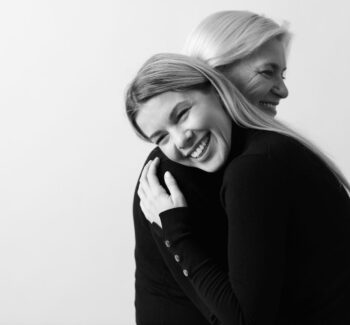
Why Couples Are Turning to Coaching
Is coaching better than therapy, counseling, or even seeing a psychologist? Why would a couple choose a coach over other methods of support? These are questions that I’ve been asked a lot of late. I am going to answer that question by sharing some ideas about what coaching is and what it is NOT and why couples are opting for coaching instead of other therapies.
It seems more and more couples are contacting me for couples coaching. I’ve been receiving frantic middle of the night emails, numerous contacts from my directory service on Psychology Today Canada, and have been receiving record word of mouth referrals. It seems couples are looking for help in ways they never have before. Currently, the divorce rate according to stats Canada is assessed at 38%. Other quotes suggest the divorce rate is higher as many couples live in permanent separation without formally divorcing. Many estranged couples cannot afford to divorce and therefore live a divorced life within the same residence sharing food, lodging, and health benefits without accruing the high cost of divorce. It makes sense then that the quality of marriages are not as high as we hope for in this country.
With all of these gloom and doom stats and other acknowledgments, we can all agree that committed partnerships and marriages do face a myriad of stressors that lead to the ending of what once started with the best- intended commitments. No one wants to fall into a divorce stat or lead a life inside a failed relationship. You will never hear a young person say when I grow up I want to get into a relationship with someone I love only for it to deteriorate and die. The philosopher and poet Henry David Thoreau said, “Most men lead lives of quiet desperation and go to the grave with the song still in them.” By the time a partner/couple divorces, permanently separates, or continues to lead lives of quiet desperation there was a path they walked together that led to the de-coupling. Relationship neglect includes all aspects of disrespect such as what Gottman discovered as the predictors of divorce which he calls, “The Four Horsemen of the Apocalypse.” These horsemen include criticism, contempt, defensiveness & stonewalling. Therapies, counseling, and psychology will attack the concerns in a couple’s relationship breakdown VERY differently than a professional wellness & performance coach.
What coaching will NOT do is what is attracting many couples who want to get their relationship on a better path.
Waypoint coaching’s role is not to assign blame, pathologize (treat someone as abnormal or unhealthy). We don’t diagnose or treat a couple as though they have some defect or malignancy. We don’t choose sides and act as the judge & jury within a couple’s conflict. Instead at Waypoint, we work with clients to identify what they want to achieve as a couple. We work through a process where couples’ define the overall goals and subsequent action steps. Couples’ also institute their own accountability support systems through the process. We treat couples’ with the utmost dignity and support clients to map out a plan to achieve the elements within their relationship that enhance wellbeing, love, devotion and foster what Gottman would call the beliefs & behaviors exhibited by master couples who go the distance. We educate couples’ on the Four Horsemen of the Apocalypse (the best predictors of divorce or breaking up) as well as the antidote to these destructive mistaken beliefs and habits within the context of organic conversations. We support the growth of “couple support” that is, we support the couple to learn how to support one another. We do not sugar coat the truth. If one partner or both partners are behaving in destructive ways we will point that out. At Waypoint we are not “yes” coaches that tell you what you want to hear. We will tell you our honest observations based on research and expertise. The success of couples’ coaching is truly because each partner has had to address their own failings & misguided understandings of what a healthy relationship looks, feels, and sounds like for both parties involved. After all, eventually working ourselves out of a job with our clients is the goal. In couples’ coaching, the goal is that the couple becomes the best support to one another.
How often should a couple see a coach?
It all depends on the goals that the couple sets before themselves and how many sessions they believe they will need to invest in to achieve their goals. Together we can assess what is best and take it one step at a time.
Couples Coaching is Comprehensive at Waypoint Wellness & Performance Coaching
After you’ve reached out to inquire about couples coaching you will receive a specific couples intake form, as well as, a couples coaching agreement (which outlines ground rules for sessions, what is included for between session support, & packages and pricing) prior to the first no charge (no obligation) consult. It is during the consult that you can ask questions for clarification etc. This way essential questions/housekeeping can be achieved prior to the first coaching session. After the consult the couple will have more information and can decide privately which package suits their situation.
Waypoint offers the most comprehensive support to couples dealing all kinds of relationship stress and/or breakdown. Some issues that couples’ bring to the coaching table include; infidelity, burn out, depression, anxiety, communication break down, conflict cycles, empty nest & other transition concerns, separation & divorce, work related stressors, parenting clashes, adult child estrangement, addiction and so much more.
What makes our extremely supportive packages comprehensive is that two coaches are involved with the couple. Also note that Waypoint offers two tiers of offerings. This is exceedingly unique.
At Waypoint we offer two tiers of coaching for couples to choose from. We have found that some couples’ wanted a much more intensive offering.
Tiers in Couple’s Coaching at Waypoint
For the Tier 1 package Lesley coaches the couple together (whether over zoom or in person) and this also includes both partners receiving in between session coaching through email. Both George and Lesley coach each of the partners’ through email for the additional in between session support. Couple’s receive tailored in between session curriculum and reflections determined by the needs of the couple. We believe this tier one coaching is vital in that each partner has a safe space that remains confidential while moving the couple forward towards their joint goals.
The Tier 2 package includes Lesley coaching the couple together (over zoom or in person) both receive in between session email support as noted above, but also in this tier George is hired on to meet 1:1 with the male partner for private coaching sessions. Essentially in this package the couple receives couple’s coaching jointly, in between session coaching with George and Lesley PLUS George is working 1:1 with the male partner for their own personal coaching as well. George’s expertise in working with men is second to none and often we have found this method helps to steer the couple and essentially the entire family onto the course of deep healing and forward movement.
George and Lesley hold multiple post graduate degrees in Educational Psychology, as well as multiple varied coaching certifications, to aid in restoring unity and building unity. Some couples’ can build on their current foundation where others need an entirely new foundation in which to build their lives together.
A learner mindset is paramount in that mistakes, and past decisions are met with curiosity instead of judgment so that the couple can learn from the process in order to move forward with newfound strategies and tools.
At Waypoint, couples’ decide after the preliminary no charge consult and in private with on another which coaching tier they believe would be most helpful for their relationship. Coaching is extremely hard work for serious couples. As a coach, I know that some couples’ are “coachable” and ready for change while others are not quite ready to embark on this journey. This is why I don’t ask clients to decide with me present. As a coach we assess if couples’ are in fact “coachable.” Coaching is a major investment and the dividends are for life, therefore, it is essential that those who commit to the process are ready to go to any length in order to get their relationship onto the desired path. In coaching the couple determines the trajectory and both must be ready to put in the work. We know that those who reach out, who are ready to commit to the process, who are willing to invest emotionally, relationally, financially and put in the hard work with commitments to time and energy are those who will see the process through towards lasting change and the best relationship possible. Waypoint is a serious coaching business and if you are serious we will take you on as a client. Just like an athlete trains for Ironman the work is done in the training. The results are when goals are achieved and the groundwork has been done.
There are different packages within these tiers that meet the financial and lifestyle needs of varied clients as well.
Just one example: Sessions for couples in serious distress (in crisis) are often immediately seen and typically in session weekly (even twice weekly) for 3 weeks after the initial emergency meeting. As the crisis begins to subside the couple often opts for a 12- week package spread out either weekly, bi-weekly or monthly. Further assessments and monitoring are discussed at which point the couple decides on the services they require, that is, how much more coaching they choose as well as top-ups yearly if necessary. The goal of couples’ coaching is to support these client partnerships in reaching their goals. Once reached they do not require coaching. Reaching goals is imperative in coaching. Coaching clients to be self-sustaining is paramount. Often many opt to check in about three times a year after the first year in order to ensure that the gains have been solidified.
As an aside, we do recommend that change occurs with more targeted work for at least 8 sessions so truly the number of sessions you decide on will correlate with the goals you want to achieve. It takes some time to eliminate destructive behaviors and replace those behaviors with the antidotes to the Four Horsemen of the Apocalypse. These positive new behaviors are taught and fostered. They include Communication Start-Up (using I statements etc.), Building a Culture of Appreciation, Taking Responsibility, and Learning and Implementing Physiological Self Soothing.
Waypoint supports clients and couples who have any relational communication concerns on the continuum of wanting things to just be in a better place all the way to severe traumas such as infidelity, betrayal, & addictions. For a more exhaustive list of services in which Waypoint can support couples click on the title “Relational Coaching, Couples, Home, Workplace” on this website.
Are you ready for couples coaching? Are you willing to do whatever it takes? It will take work, dedication, accountability, sacrifice and determination. Perhaps it is time to invest in your relationship. Coaching works!
- For further reading check out, “Finding Inner Peace.”Click Here
- For even further reading check out, “Manage Conflict.” Click Here
- To reach out to George or Lesley for coaching support head over to the contact page. Click Here





